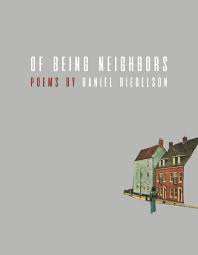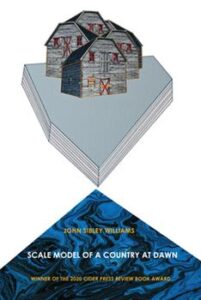Review by Allison Pitinii Davis // December 4, 2017
Bull City Press, 2017
ISBN: 978-1-4951-5768-4
48 pp. / $12.00
In Henry Kissinger, Mon Amour (Bull City Press, 2017), winner of the 2017 Frost Place Chapbook Competition, former U.S. Secretary of State Henry Kissinger takes the speaker on a surreal tour of international atrocities. The collection’s absurdism deglorifies and satirizes Kissinger and his neo-imperialist policies. By posing as Kissinger’s lover, the speaker inhabits a self-incriminating position. This suggests that Kissinger represents both himself but also the oppressor in all Americans—we all are complicit in his crimes. The dark humor in this collection cuts both ways—by the end, to accuse Kissinger is to accuse the self.
The title—a play on Alain Resnais’s film Hiroshima mon amour—foreshadows the themes of war and love.The collection’s 19 poems place readers in the aftermaths of military campaigns and state terror, especially Cold-War-era Operation Condor (1968–1989). The collection situates Kissinger’s involvement in the operation in the larger context of historic atrocity through its exploration of the Nazi-led Oradour-sur-Glane massacre (1944) and Papal-led Albigensian Crusade (1209–1229). These poems aestheticize the banality of evil—in “My First Day in Argentina,” “The Albigensian Crusade,” and especially in “A Short History of Operation Condor,” Kissinger and the speaker commemorate human suffering by gorging themselves on food, capitalism, white supremacy, and each other:
We fed each other delicacies with dirty hands—
dulce de leche under our nails, beefy
sinews between our teeth. We flossed
with the flags of every country but our own.
We bought islands we couldn’t even stripmine.
We were white and alive and in love
with the little pulse in each other’s wrist
that went give and take and give and take
and take take take take take take take. (5, 9-17)
Eating and loving are conflated with exploiting—Kissinger cannot act without exploiting. He is depicted as a system that converts every movement into acquisition. Even when giving, Kissinger is taking, as if every act he commits is surrounded by an absolute value sign that ensures that he ends up on top. Tonally, from the title onward, the collection forces language into a similar machine—no matter how violent the atrocity, the high-satire allows the collection to discuss it like it’s mundane. The result is that Kissinger and the speaker’s language itself commits an atrocity: it makes the immoral tonally moral. The form of the collection enacts its contents: for Kissinger and the speaker, “We bought islands we couldn’t even strip-mine” is an act of giddy luxury. For the reader who is in on the satire, it is a chance to get deeper into the psychology of evil than a more solemn collection would have allowed. Allowing the reader in this close is uncomfortable, and that is a success of the book. Bracken doesn’t hide behind self-righteousness, and in result, he doesn’t allow his readers to find refuge in their own feelings of innocence. This is a collection that asks us to look at and listen to Kissinger only to realize that Kissinger is a mirror, an echo.
Speaking of looking at Kissinger, the speaker does it a lot, and in this collection about mass murders, it is significant that the body we see most mangled is Kissinger’s. Perhaps the most provocative poem is “Henry Makes a Suggestion.” Kissinger’s suggestion is that the speaker turns Kissinger’s body into a canoe. The list of specifics is funny until we reach the skin:
His legs the oars, an arm the tiller,
the ribs and spine a sturdy frame over which
to stretch and batten the skin
I’ll have to shave and tan and oil first (15, 3-6)
These lines that ask the reader to imagine Kissinger’s skin being stretched and tanned cannot avoid asking the reader to think about the irony of Kissinger’s history. Kissinger, born to a Jewish family in Germany in 1923, fled Nazi persecution in 1938. These lines recall the popular accusation that Nazis—most famously, Ilse Koch—made lampshades out of the skin of concentration camp inmates. Kissinger extended the cruelty to others that Nazis wanted to extend to him and his family—he narrowly escaped persecution only to persecute others. These lines suggest that perhaps Kissinger has awareness of this, and this poem is as close as Kissinger comes to admitting guilt.
Kissinger’s dehumanized body situates Kissinger’s irony within a larger historical lesson: the oppressed can become the oppressor. In the final poem of the collection, “The Vulgar Luxury It Is to Be,” the speaker enacts Kissinger’s violence when he kills a chicken and imagines, to relieve his guilt, that the chicken wanted to die. The speaker believes, like Kissinger, that he has the right to transform his victim’s suffering into a larger narrative about the oppressor’s suffering. The speaker imagines that his own hunger “is a sacrament/even this chicken knelt to take.//I believe I am owed this” (35, 25-17). Kissinger and the speaker (and thus, the reader) become one, and the collection intentionally leaves the reader with nowhere to wash our hands of the union.
ABOUT THE REVIEWER
Allison Pitinii Davis is the author of Line Study of a Motel Clerk (Baobab Press, 2017) and Poppy Seeds (Kent State University Press, 2013), winner of the Wick Poetry Chapbook Prize. She holds an MFA from Ohio State University and fellowships from Stanford University’s Wallace Stegner program and the Fine Arts Work Center in Provincetown. Her poetry and reviews have appeared in Best American Poetry 2016, Crazyhorse, The New Republic, The Bind, The New Orleans Review, and elsewhere. She is a PhD student at The University of Tennessee.






